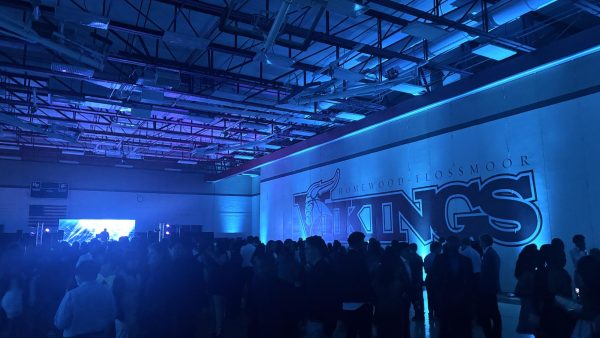“I hate my job”
Students struggle with jobs during high unemployment rate
Being one of the few employees at her workplace, senior Kayla Davis is overworked and rarely receives breaks. Davis said that one of the few times that she gets a break is when the place “slows down.”
“The only time I’m able to get a break is if I’m working a 12 hour shift or if there aren’t any customers,” she said. “That’s my break.”
After working a double shift from 9 a.m. until 11 p.m., Davis was given a “break” that many would consider an unfair amount of time to regroup. Her break was less than an hour long.
On top of being overworked during the 4-5 days that she works per week, Davis receives minimum wage in exchange for her endless labor.
“They don’t even pay me enough, honestly,” Davis said. “I’m usually there from 4-11 because I have to stay and clean after we close.
While many teens are desperate for a job, those lucky enough to find a job face the harsh reality of working long hours and enduring demanding responsibilities. This causes students to compromise their grades, their mental state, and their social life.
According to a study released by CareerBuilder, the number of jobs held between teens aged 14-18 shrank by 33 percent between 2001 and 2014.
Senior Claudia Roberts will serve customers, deal with complaints, cut and box an upward of 100 pizzas, keep the front stocked, clean, sweep, and mop during an average shift at Little Caesar’s Pizza, and she hates it.
Roberts has actively tried to quit her job multiple times, but says she’s too passive to follow through.
“Before I went to camp, I requested off for the summer,” Roberts said. “I was put on the schedule up until the day I left. When I came back from camp, somehow my boss found out I was back in town and she called me to let me know I was back on the schedule.”
Despite not wanting to let her boss down by quitting, Roberts still finds her job to be entirely too exhausting.
“I want to quit my job because $8.25 an hour is not enough for all of the back-breaking-labor I do,” Roberts said. “At this point, it’s really just hard to balance everything.”
According to the Bureau of Labor Statistics, the youth unemployment rate was 12.2 percent during July 2015.
The low unemployment rate for teens could be attributed to the mandatory law requirements demanded by businesses.
Career Internship teacher Courtney Alexander says teen jobs are becoming more difficult to obtain as businesses are hiring more experienced workers and some are even raising their minimum age to 18.
“A lot of businesses are raising their age to 18,” she said. “A lot of businesses are now hiring older workers as well.”
“It really depends on the individual and how they can how much they can handle,” Alexander said.
Senior Shannon Dunne says scheduling her time can be quite difficult.
Dunne is employed as a hostess at Aurelio’s Pizza, an assistant at Sylvan Learning Center and is a seasonal referee for club volleyball at St. Joseph’s Catholic School.
“Anything that isn’t an everyday, normal activity that can be scheduled around, I can’t go to,” Dunne said. “I usually have to miss things like birthday dinners for my friends, family and even myself.”
Dunne says if her job experience has taught her anything, it’s how to manage her time well.
“On Saturdays when I work at Aurelio’s, I get off at 1 p.m. and have to be back by 3:30 p.m.,” she said. “During that time I catch up on homework because I know after my shift is over, around nine, I’ll want to hangout with my friends.”
While Dunne, Davis and Roberts may not be completely satisfied with their jobs, many teens remain unemployed.
Senior Dionne Gamble fits the 18.8 percent of teens that are currently unemployed.
“Over the summer I used to look (for a job) maybe three times a week,” she said. “Now I look every couple of weeks.”
Gamble says she wants a job because being independent and being able to make things happen for herself are important.
“I feel like they aren’t hiring people my age or they aren’t looking to hire anyone at all,” Gamble said.
Alexander says students shouldn’t take rejection personally.
“Many businesses don’t want to hire teens because of their lack of experience,” she said. “However, this can easily be duped by volunteering. Even though you won’t get paid, you’ll have more work experience.”




